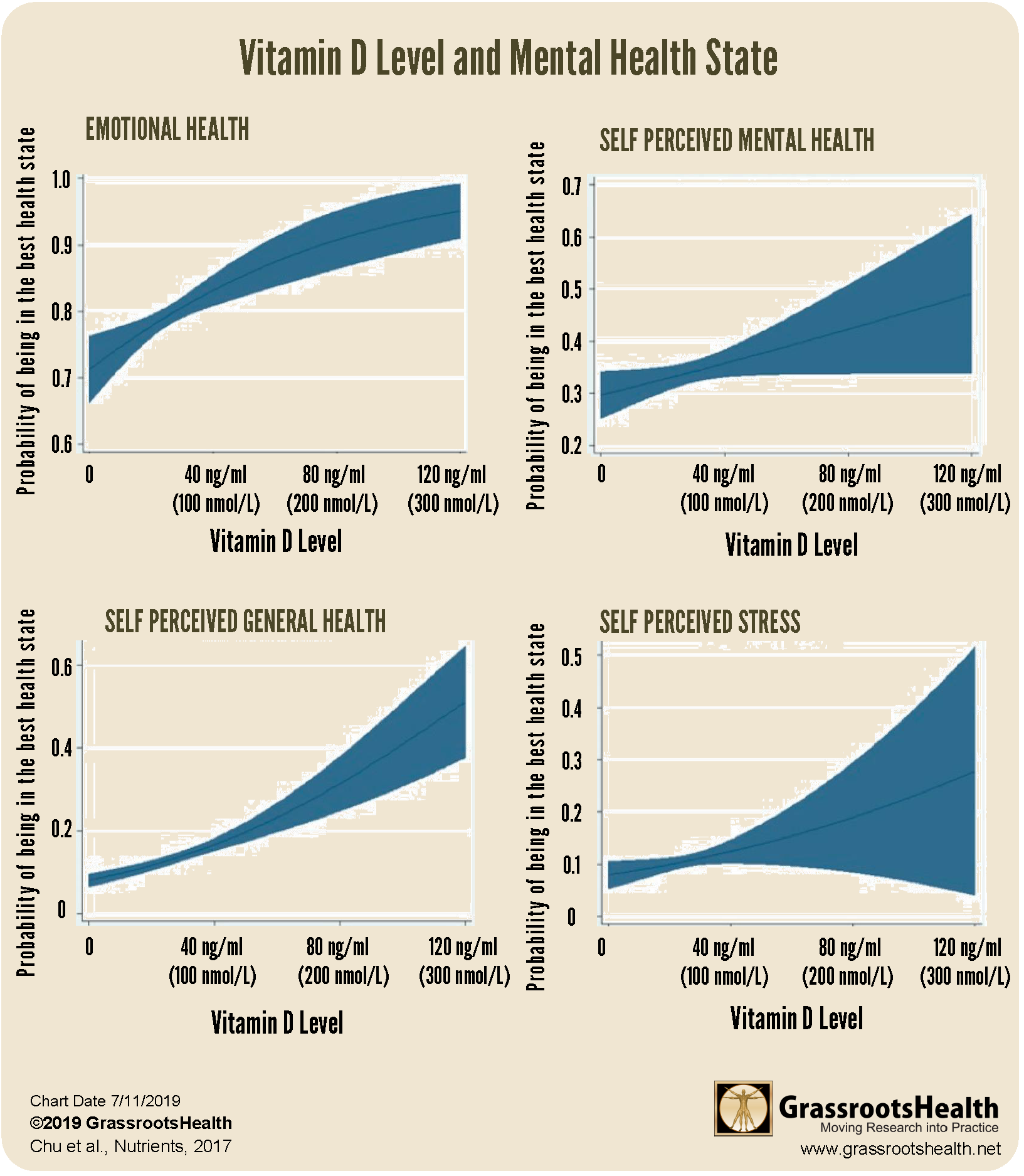Published on July 16, 2019
 Mental health conditions are very common, with an estimated 50% of Americans diagnosed with a mental disorder at some point in their lifetime. Vitamin D has been biologically linked to emotional well-being, mood, and better mental health.
Mental health conditions are very common, with an estimated 50% of Americans diagnosed with a mental disorder at some point in their lifetime. Vitamin D has been biologically linked to emotional well-being, mood, and better mental health.
In October 2017, results were published from a study assessing the relationship between vitamin D levels and indicators of mental health such as depression, anxiety, and stress among 7,518 adult Canadians.
What were the findings of the study?
All measured indicators of mental health (emotional health, self-perceived mental health, self-perceived general health, and self-perceived stress) were positively associated with higher vitamin D levels. The charts below show the probability of being in the best health state by vitamin D level, with a higher probability with higher vitamin D levels.
These associations were adjusted for other risk factors such as age, sex, marital status, education, ethnicity, household income, smoking, drinking, and chronic and acute health conditions.
Could your vitamin D level be affecting your mental health?
Make sure you know your vitamin D level and are taking daily steps to keep it at a level of 40-60 ng/ml (100-150 nmol/L). Find out your levels today! Log on to the shop (click the link below) to get your tests and see for yourself if your levels can be improved.
Make sure you track your results before and after, about every 6 months!
How can I track my vitamin D intake and levels over time?
To help you track your supplement use and nutrient levels, GrassrootsHealth has created an online tracking system called myData-myAnswers. For each specific supplement, you can track what days you take it, how much, and many other details. This will help you know your true supplemental intake and what patterns of use work for you to reach and maintain optimum nutrient levels. Check it out today!







